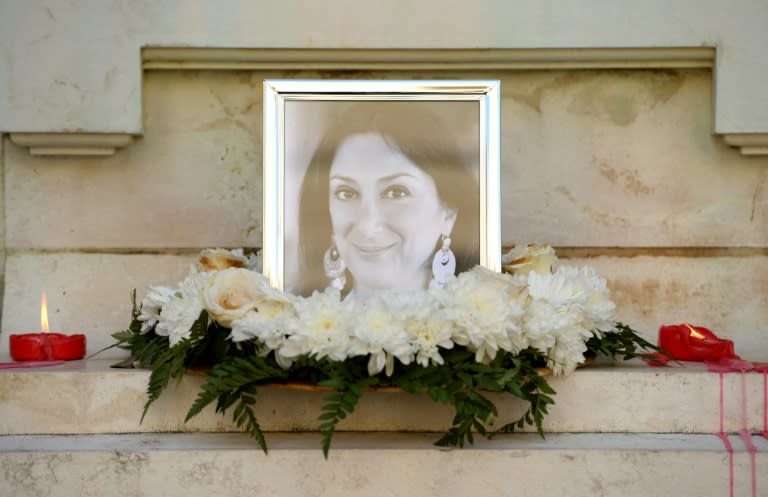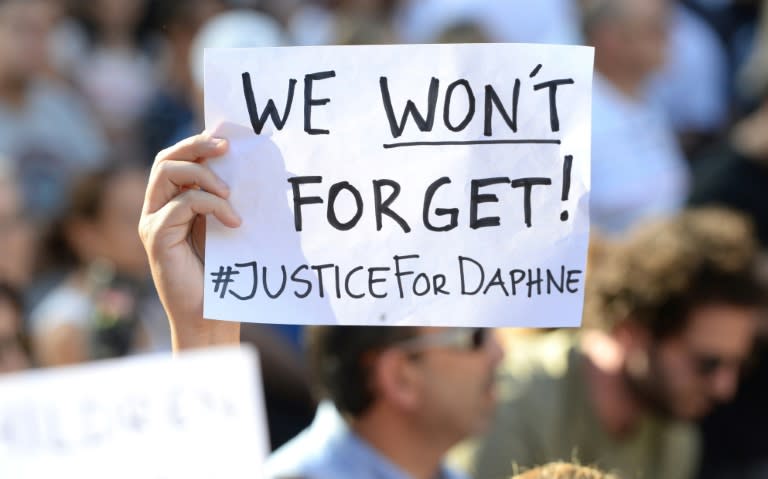Family holds funeral for murdered Maltese journalist
Flags flew at half mast across Malta on Friday to mark the funeral of journalist Daphne Caruana Galizia, amid fresh calls for Europe to find those guilty of her brutal murder. The anti-corruption campaigner will be laid to rest after a service in Mosta, close to the site where the blogger was blown up in a car bombing in an October 16 attack which made headlines around the world. Caruana Galizia, 53, had made repeated and detailed corruption allegations for years against Prime Minister Joseph Muscat's inner circle and had recently turned her investigative scrutiny on the opposition as well. After her death, her family accused Muscat of creating a culture of impunity that turned Malta into a "mafia island". While Malta declared a day of mourning, figures of state were not expected at the ceremony. Caruana Galizia's family said they did not want either the prime minister or Malta's president to attend, and told journalists to stay away. European Parliament chief Antonio Tajani and the OSCE's media freedom representative Harlem Desir are both expected at the 2 pm (1300 GMT) ceremony in the Roman Catholic church. "The right of a journalist to investigate, ask uncomfortable questions and report effectively, is at the heart of our values and needs to be guaranteed at all times," the European Commission said in a statement Friday. Eight of the world's largest news organisations have urged the commission to probe the murder, saying it could not be allowed to achieve the "clear objective of silencing her investigation into corruption at the highest levels in Malta". Signatories include James Harding, the director of news and current affairs at the BBC, Jerome Fenoglio, director of Le Monde, Katharine Viner, the editor-in-chief of the Guardian and Dean Baquet, New York Times executive editor. They also call for an investigation into the independence of the media in Malta, pointing to worrying commission findings that suggested it was the "only EU country that has such extensive media ownership by the political parties".



